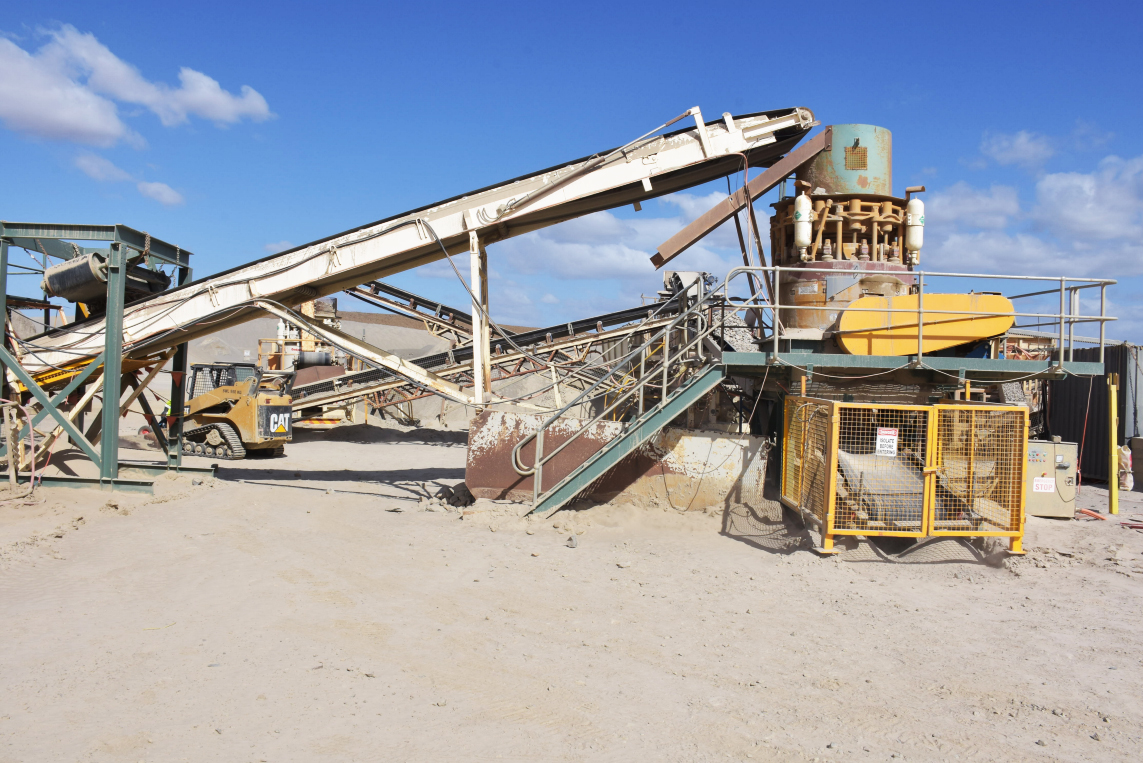A quartzite quarry operator and a labour hire company have been fined a total of $479,000 following the death of a worker in April 2020.
Kara Resources, trading as Hallett Resources Truro, and Taurus Recruitment both pleaded guilty in the South Australian Employment Tribunal (SAET) for breaches of the Work Health and Safety Act 2012.
A 29-year-old man suffered fatal head injuries when he entered a cavity of a rock crushing machine and attempted to remove a metal blockage at the quarry near Truro, about 100km north-east of Adelaide.
When the blockage was released, stored energy from within the machine caused its components to move under considerable force, striking the worker in the head.
No risk assessment or safe work method was created for this hazardous task. No training was provided to the worker in the removal of metal blockages.
SafeWork SA’s investigation identified that the risk of injury was foreseeable, and the incident could have been avoided had the company had adequate training and safe work procedures in place.

The Truro quarry site
Kara Resources failed to provide and maintain as far as is reasonably practicable:
- A safe system of work for the task, as it did not perform an adequate hazard identification and risk assessment process specific to the task
- Information, training, instruction or supervision that is necessary to protect all persons from risks to their health and safety arising from work carried out as part of the conduct of its business.
Taurus Recruitment failed to adequately consult, cooperate, and coordinate with the host employer to ensure that adequate hazard identification and risk assessments process were in place.
It also failed to ensure that the host employer provided and maintained adequate safe work method statements and documented safe work procedures in relation to the safe operation and safe removal of metal blockages.
The SAET convicted Kara Resources and imposed a fine of $650,000 (reduced to $455,000 after a 30 per cent discount for early guilty plea) plus legal fees.
Taurus Recruitment, the labour hire company that employed the worker, was also convicted and fined $40,000 (reduced to $24,000 after a 40 per cent discount for early guilty pleas) plus legal fees.
The deceased worker was employed by Taurus Recruitment on 14 March 2020 and had worked at the quartzite quarry for the five weeks leading up to the incident.
In his sentencing comments this morning, Deputy President Judge Rossi said the worker and his family were entitled to rely upon Kara, to adequately train and supervise him.
‘He, his wife and their three young children were entitled to expect that after each shift of work he would return safely home,’ Deputy President Judge Rossi said.
‘At the same time, he and his family were also entitled to assume that Taurus, as his employer, would, insofar as was reasonably practicable, consult, cooperate and coordinate the activities to be performed.
‘The pressure and forces associated with a stalled crushing mechanism to a Rollercone Crusher were known to Kara before the incident on 21 April 2020.
‘The tragic loss of life in this case could have, and should have, been avoided by a simple but firm instruction implemented as a safe work procedure and properly supervised and maintained, which prohibited any worker from entering a Rollercone Crusher to remove a blockage or to conduct any other maintenance work.’
SafeWork SA Executive Director Martyn Campbell said this was another needless loss of life undertaking a risky task that was clearly preventable.
‘Our thoughts are with the family at this time,’ he said.
‘This is another example of a young worker who was new to the role being put in a risky environment that had the ultimate consequence.
‘No sentence can return their loved one, however, this failure of the reasonable standard of care needs to be addressed and the Court has done so today.
‘This is a lesson to all businesses to undertake risk assessments on tasks and plant machinery.
‘You must identify risks and eliminate them. If you cannot eliminate them, reduce the risk to as low as reasonably practicable.’




